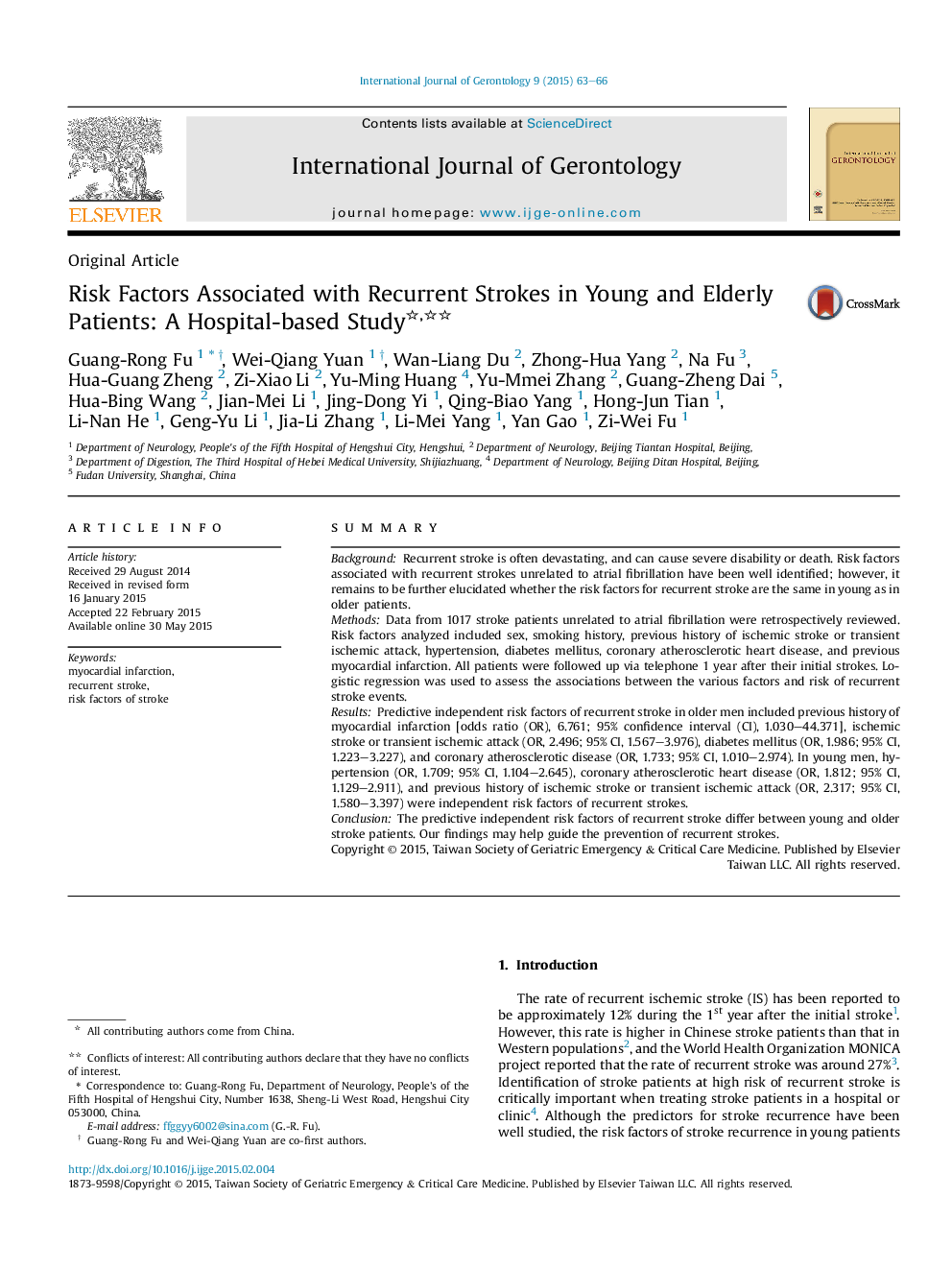| Article ID | Journal | Published Year | Pages | File Type |
|---|---|---|---|---|
| 3325055 | International Journal of Gerontology | 2015 | 4 Pages |
SummaryBackgroundRecurrent stroke is often devastating, and can cause severe disability or death. Risk factors associated with recurrent strokes unrelated to atrial fibrillation have been well identified; however, it remains to be further elucidated whether the risk factors for recurrent stroke are the same in young as in older patients.MethodsData from 1017 stroke patients unrelated to atrial fibrillation were retrospectively reviewed. Risk factors analyzed included sex, smoking history, previous history of ischemic stroke or transient ischemic attack, hypertension, diabetes mellitus, coronary atherosclerotic heart disease, and previous myocardial infarction. All patients were followed up via telephone 1 year after their initial strokes. Logistic regression was used to assess the associations between the various factors and risk of recurrent stroke events.ResultsPredictive independent risk factors of recurrent stroke in older men included previous history of myocardial infarction [odds ratio (OR), 6.761; 95% confidence interval (CI), 1.030–44.371], ischemic stroke or transient ischemic attack (OR, 2.496; 95% CI, 1.567–3.976), diabetes mellitus (OR, 1.986; 95% CI, 1.223–3.227), and coronary atherosclerotic disease (OR, 1.733; 95% CI, 1.010–2.974). In young men, hypertension (OR, 1.709; 95% CI, 1.104–2.645), coronary atherosclerotic heart disease (OR, 1.812; 95% CI, 1.129–2.911), and previous history of ischemic stroke or transient ischemic attack (OR, 2.317; 95% CI, 1.580–3.397) were independent risk factors of recurrent strokes.ConclusionThe predictive independent risk factors of recurrent stroke differ between young and older stroke patients. Our findings may help guide the prevention of recurrent strokes.
